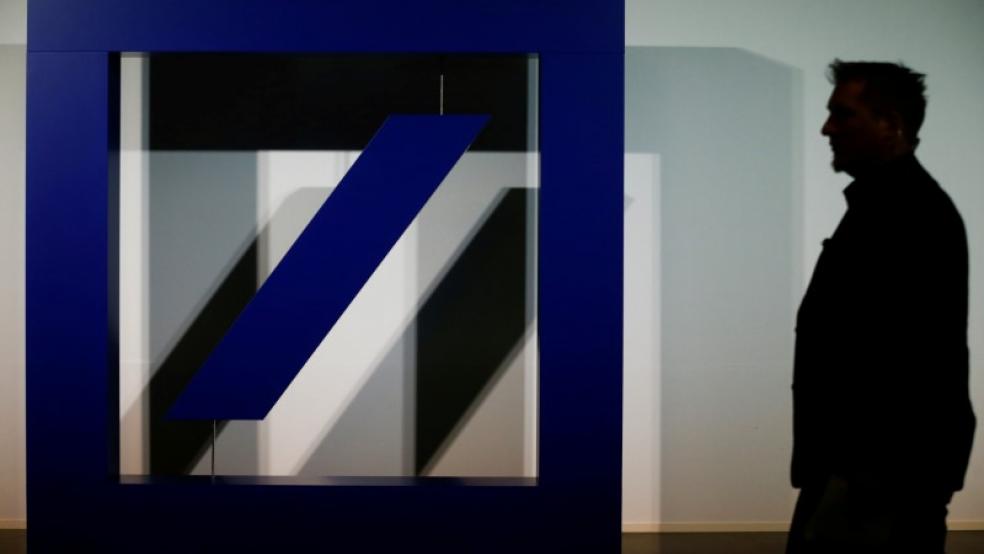By Tom Sims
FRANKFURT (Reuters) - Europe's top banking regulator, the European Central Bank (ECB), is considering carrying out a review of Deutsche Bank's
two largest shareholders, a regulatory source said on Monday.The ECB may launch so-called ownership-control procedures to scrutinize Qatar's royal family and China's HNA, which each owns just under 10 percent of Germany's flagship lender."That the ECB is investigating or considering to investigate the shareholdings is indeed accurate," said the person, speaking on condition of anonymity because the person was not authorized to speak publicly about a review that is ongoing.News of the possible review was first reported by the Sueddeutsche Zeitung on Sunday.The ECB, Deutsche Bank and HNA declined to comment. A spokesman for the office of Sheikh Hamad bin Jassim bin Jabr al-Thani in Qatar was not immediately available to comment.The German finance ministry said it had taken notice of reports of the possible review but declined further comment.The motivation for a review remains unclear. Generally such an assessment aims to establish whether an investor is trustworthy and financially sound, determine the source of investment funds and find out whether an investor engages in any criminal dealings such as money-laundering or terrorism financing."The approval process aims to ensure that only suitable shareholders enter the banking system in order to prevent any disruptions to the smooth functioning of the banking system," the ECB's website says.Normally, the review takes place once a holding reaches 10 percent of shares or voting rights. But it may also take place if there is "significant influence over the management of the bank", the ECB's website says.Both Qatar and HNA have been granted a seat on the Deutsche Bank board.HNA, which has been on a global shopping spree in past years, began acquiring its Deutsche stake this year in multiple steps, saying the bank's shares were "substantially undervalued and are an attractive investment", according to an SEC filing.The purchase was financed by UBS and the holding is in a special fund managed by the Austrian asset manager C-Quadrat. Quadrat chief Alexander Schuetz sits on the Deutsche Bank board.A spokesman for C-Quadrat said the asset manager was unaware of any possible review by the ECB.Qatar's royal family built up its stake first in 2014 during a capital increase. Lawyer Stefan Simon represents Qatar on the board. Qatar is under political and economic pressure, with neighbors including Saudi Arabia accusing it of terror financing and cosying up to Iran, a nation other Gulf Arab states have long viewed with suspicion.Deutsche Bank sees the HNA and Qatari stakes as a vote of confidence that should encourage other investors, big and small. In May, German regulator BaFin welcomed the HNA investment. "We believe it is fundamentally positive that capital is being invested in German banks. This of course includes foreign capital and of course Chinese capital," BaFin President Felix Hufeld said at the time.A negative outcome of a review could result in the ECB prohibiting the shareholder from exercising its voting rights. The process underway does not indicate any wrongdoing, though it does come at an awkward time for Germany's largest lender. Deutsche Bank is grappling with a strategic turnaround, an uncertain global economy and the impact of Britain's departure from the European Union. In addition, the bank is recovering from multiple legal battles and has paid billions in fines and settlements for cases ranging from its role in marketing of U.S. mortgage-backed securities to a so-called "mirror trading" scheme that could be used for money laundering. Now that light is at the end of the tunnel on the legal front, scrutiny of Deutsche Bank's customers and investors is casting an additional shadow in the bank's reputation.Recently, some Democratic members of the U.S. Congress have renewed efforts to find possible links between banks such as Deutsche Bank, U.S. President Donald Trump and Russia, as they look for evidence of collusion between the Trump campaign and Russia in the 2016 U.S. election campaign.Deutsche Bank is one of Trump's largest lenders, according to regulatory filings, but the bank has declined Democrats' demands to provide records of its client, citing privacy concerns. Trump and the Kremlin have denied any collusion in the election. (Additional reporting by Arno Schuetze, Balazs Koranyi, Alexander Huebner, Frank Siebelt,; Matthew Miller and Tom Finn)
